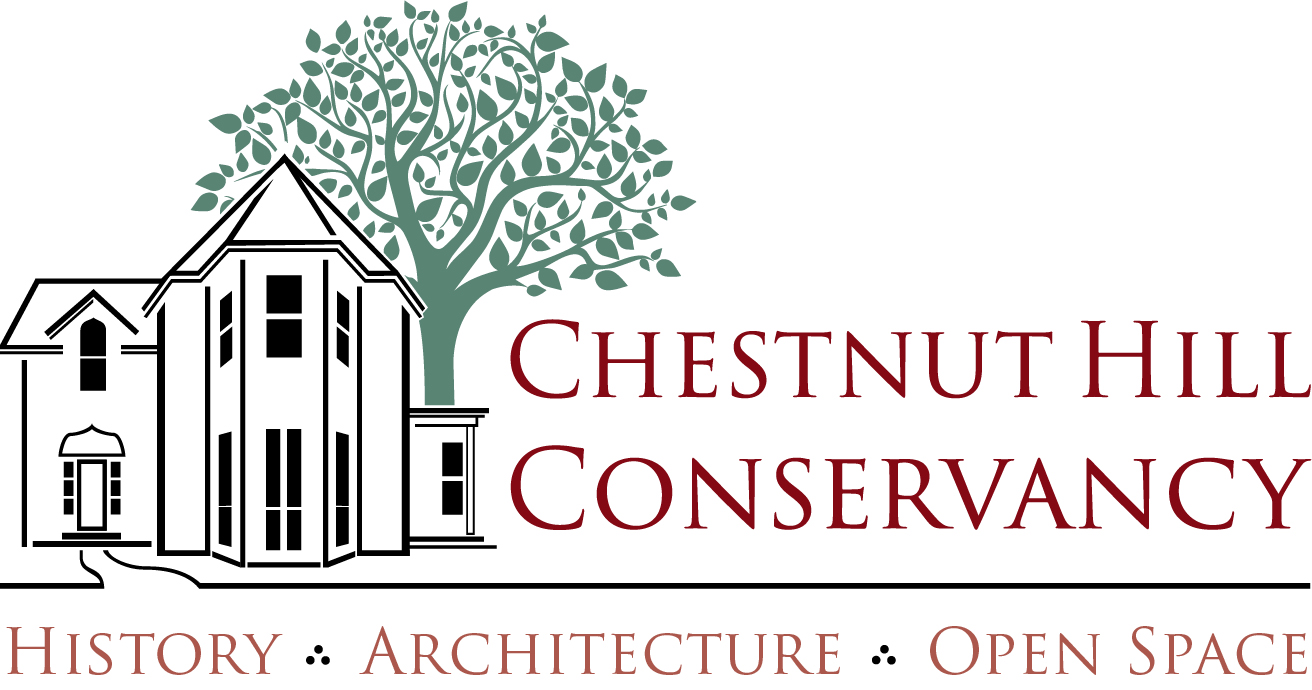Honoring the Legacy of Our Archives: A New Chapter Begins

Tuesday, June 18, 2024
By Chrissy Clawson, Programs and Communications Manager
Liz Jarvis retired as the Conservancy’s Curator/Archivist on May 3 after 30 years of caring for and growing the Chestnut Hill Conservancy’s Archives. Her legacy lives on through the Archives, which will continue to serve as a vital resource for our community for generations. Following Liz’s retirement, Alex Bartlett has seamlessly transitioned into the position of Archives and Curator.
From a young age, Alex Bartlett was captivated by the allure of history. His journey from childhood curiosity to professional achievement is a testament to his unwavering dedication, passion, and expertise.
This passion for archaeology and history stayed with Alex through his formative years. By the time he was a junior in high school, he knew he wanted to pursue archaeology as a career. He studied Anthropology and Archaeology at Temple University, where he immersed himself in these fields’ academic and practical aspects. After earning his degree, Alex spent around 15 years in archaeology. In 2007, he enrolled at the University of the Arts to pursue a Master’s degree in Museum Communications, which he describes as “essentially museum studies.” This program equipped him with the skills needed to manage museum collections, understand nonprofit management, and engage with the public in meaningful ways.
Conservancy Executive Director Lori Salganicoff remarked, “The greater Chestnut Hill community has been fortunate to have Alex Bartlett in our archives and on the Conservancy staff for 15 years. Alex’s expert knowledge and deep personal connection to this area – combined with his curiosity and generosity in assisting others with their research – have greatly enriched our understanding of this community.” She added, “Plus, he’s lots of fun to work with! I am excited to see how Alex’s leadership in the archives will help the entire Conservancy grow and evolve.”
Alex’s contributions have not only preserved our community’s rich history but have also made it accessible and engaging for all.
Tom Boyle, a supporter of the archives, describes Alex as a “font of so much local history it boggles the mind; a dedicated preservationist; knowledgeable archivist; willing historical collaborator; trusted teacher, friend, and mentor. These qualities briefly describe Alex Bartlett’s tenure with the Chestnut Hill Conservancy. It is difficult to imagine any history of Chestnut Hill, no matter how obscure, with which Alex is unfamiliar. He is a local treasure, formidable and enduring as the Wissahickon schist and the Old German Township. May we all continue to enjoy his talents for many more years to come.”
Alex Bartlett’s journey is a testament to the power of passion, patience, and perseverance. His contributions to the Conservancy have preserved the area’s rich history and made it accessible and engaging for future generations. As he continues in his role, the community can look forward to many more years of invaluable work and dedication.
Look out for a longer article coming soon that will highlight more about Alex and the future of the archives under his leadership as the curator!












